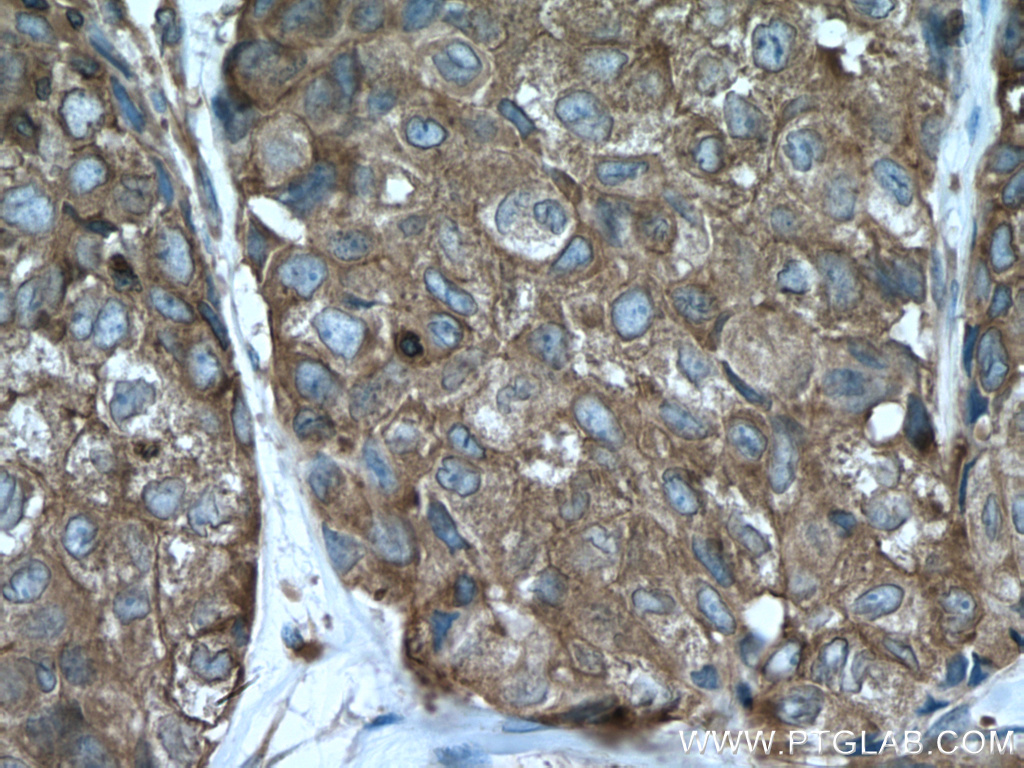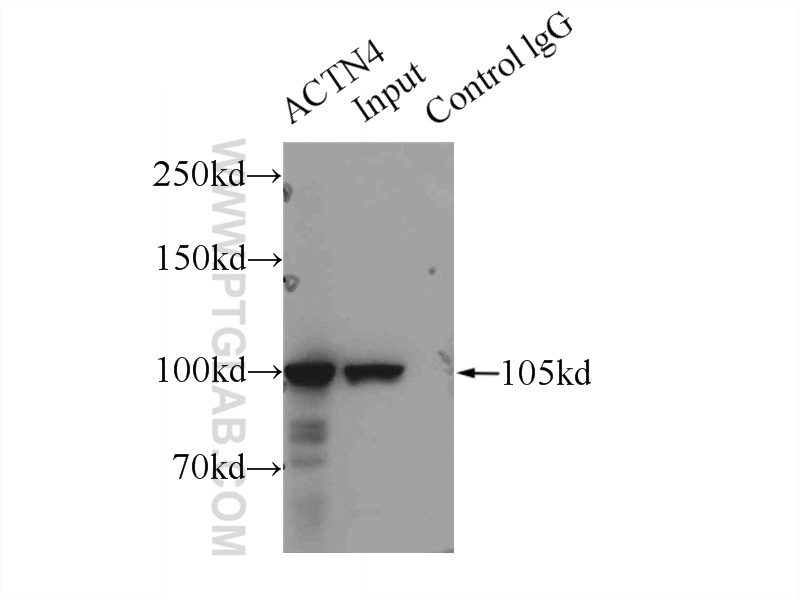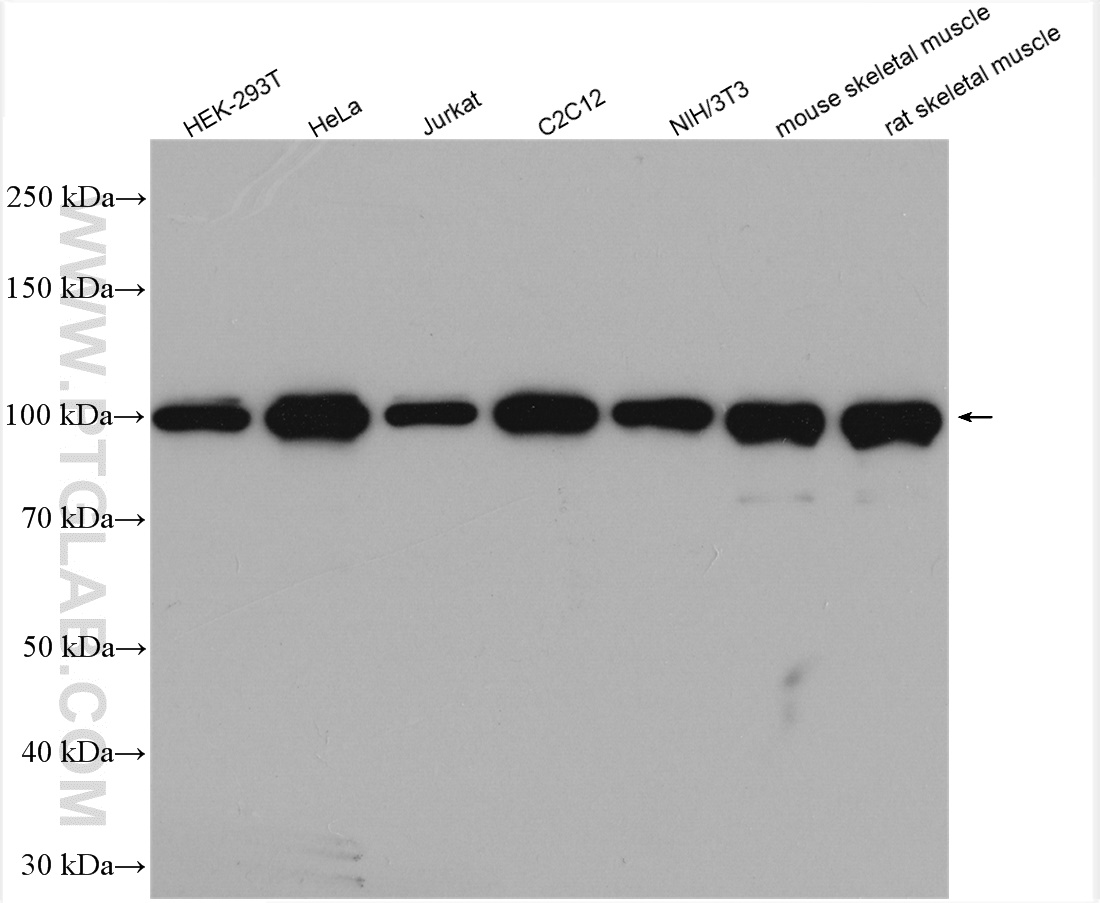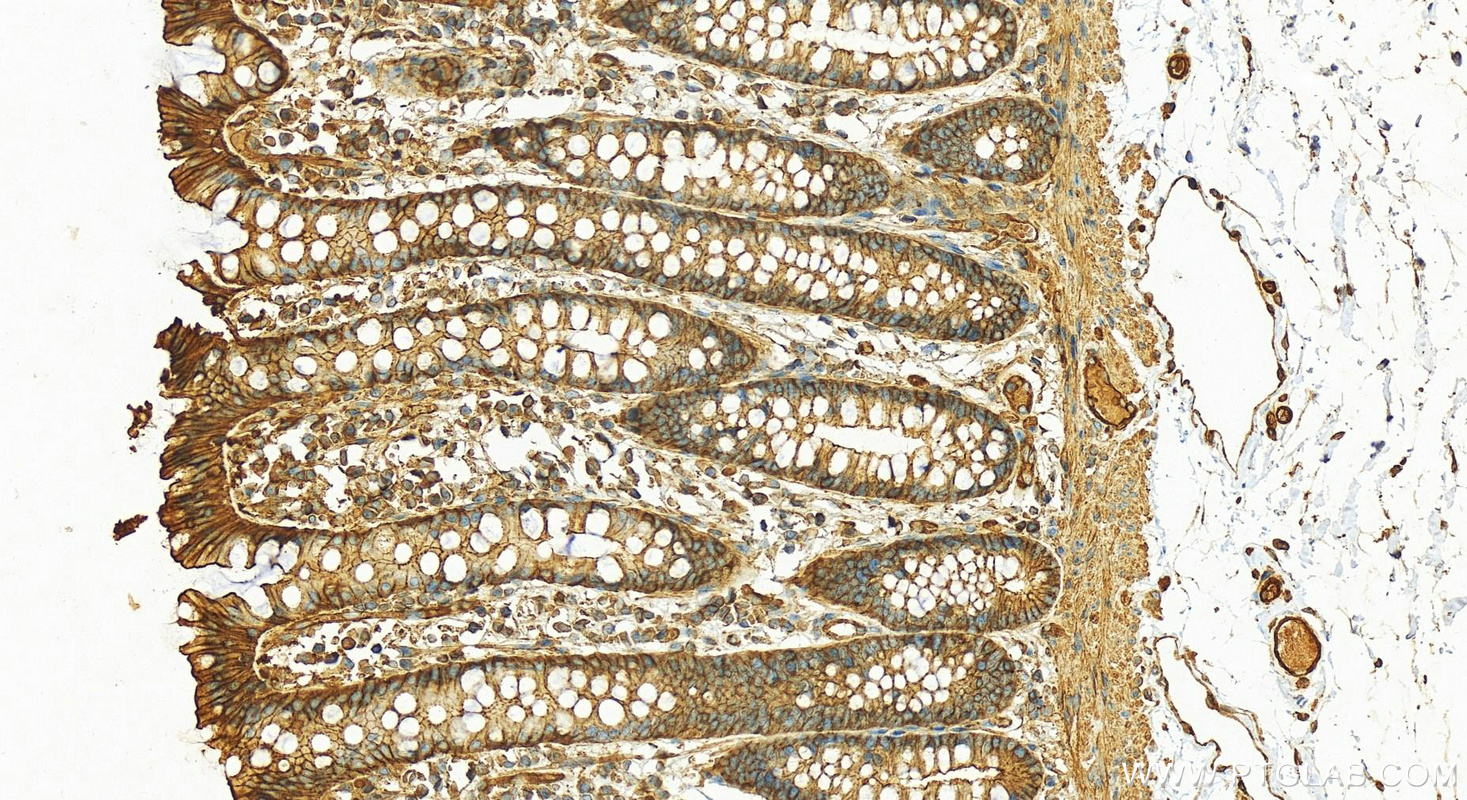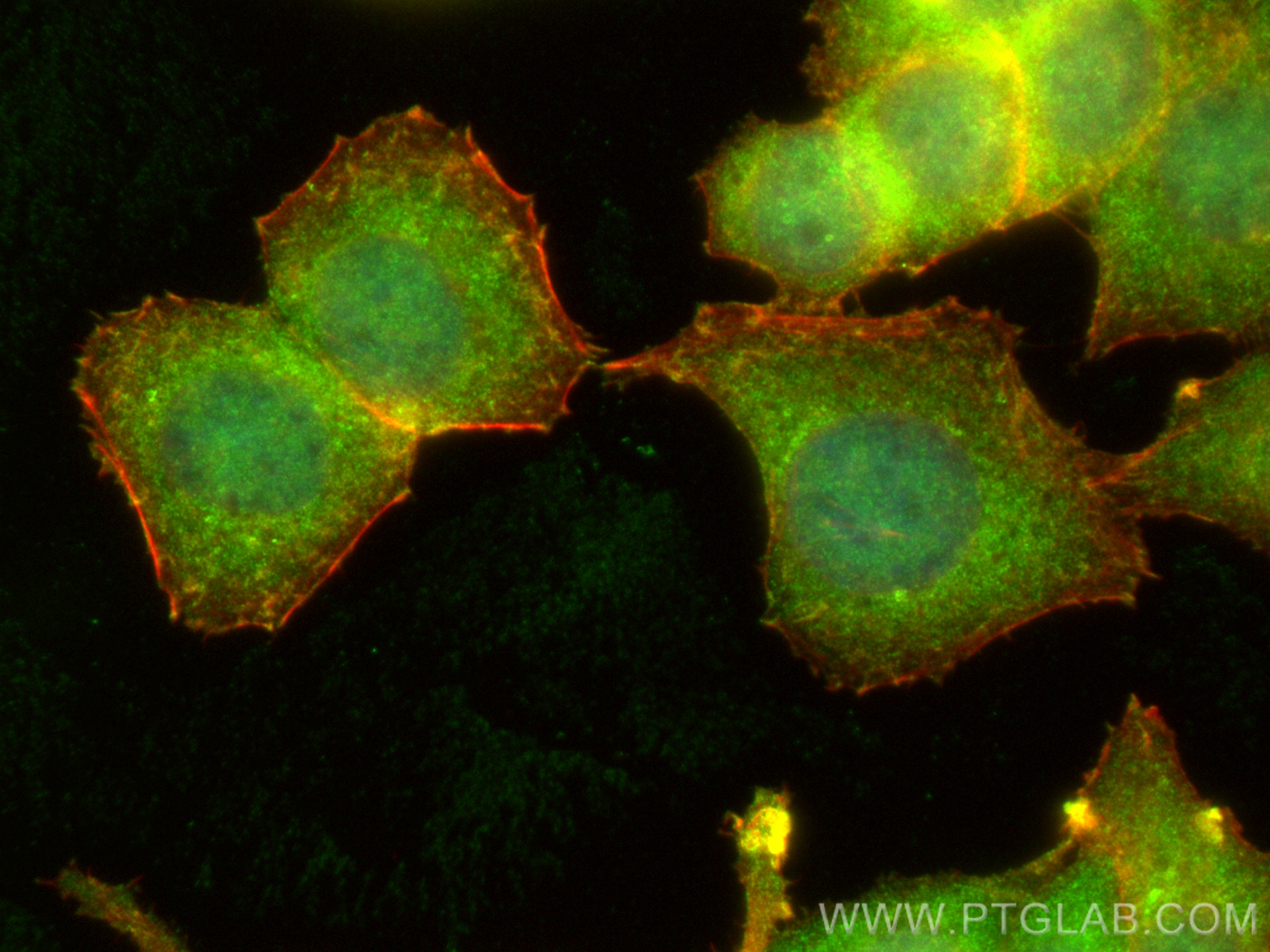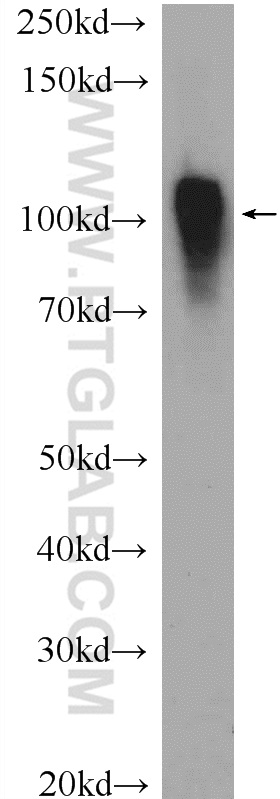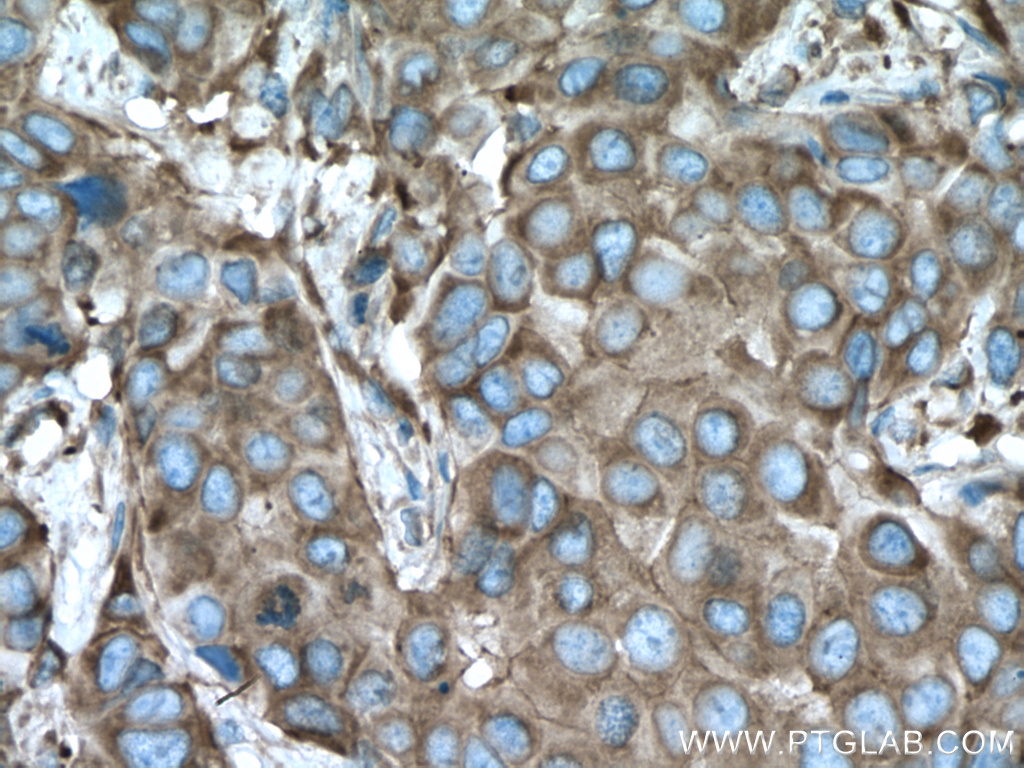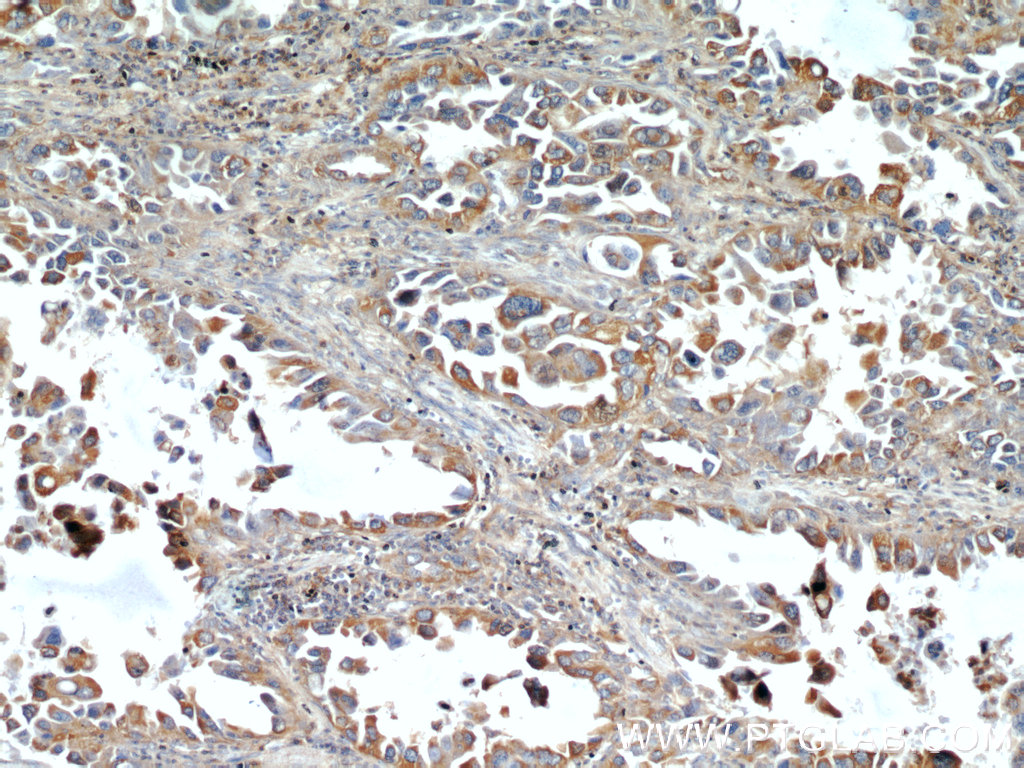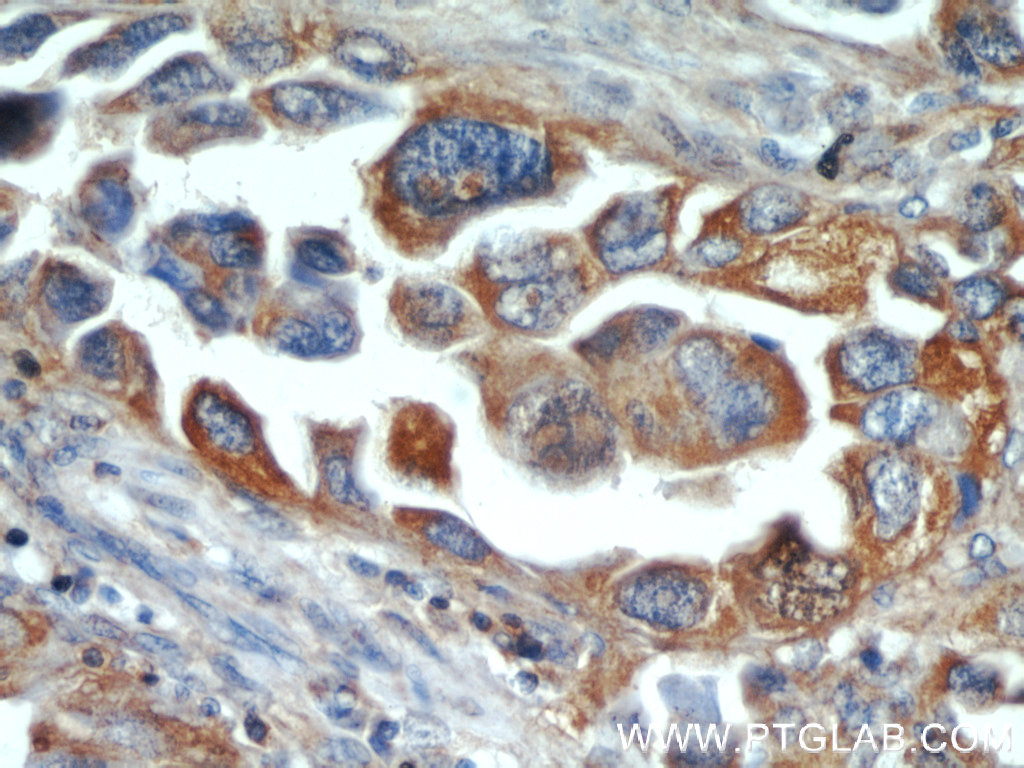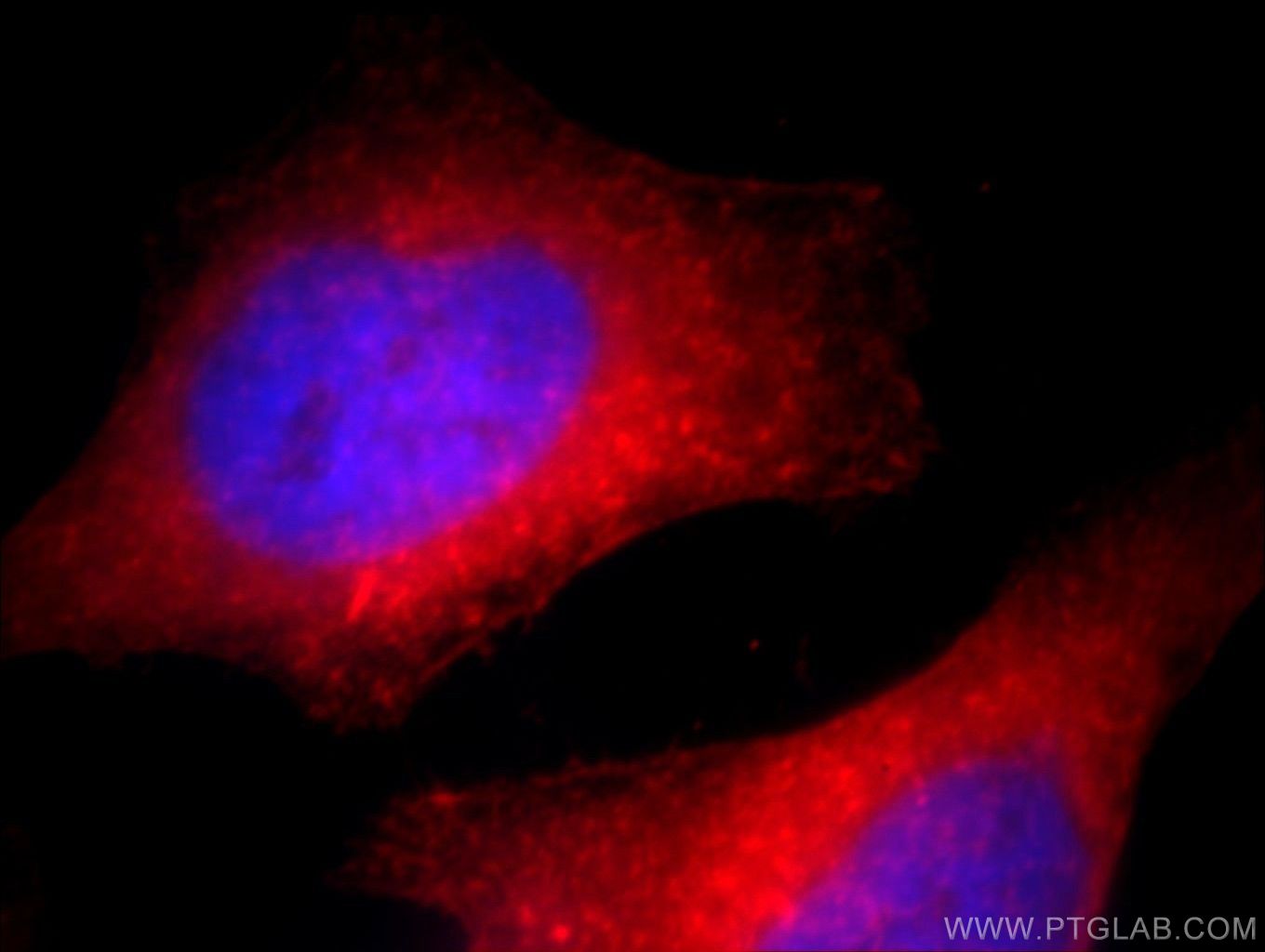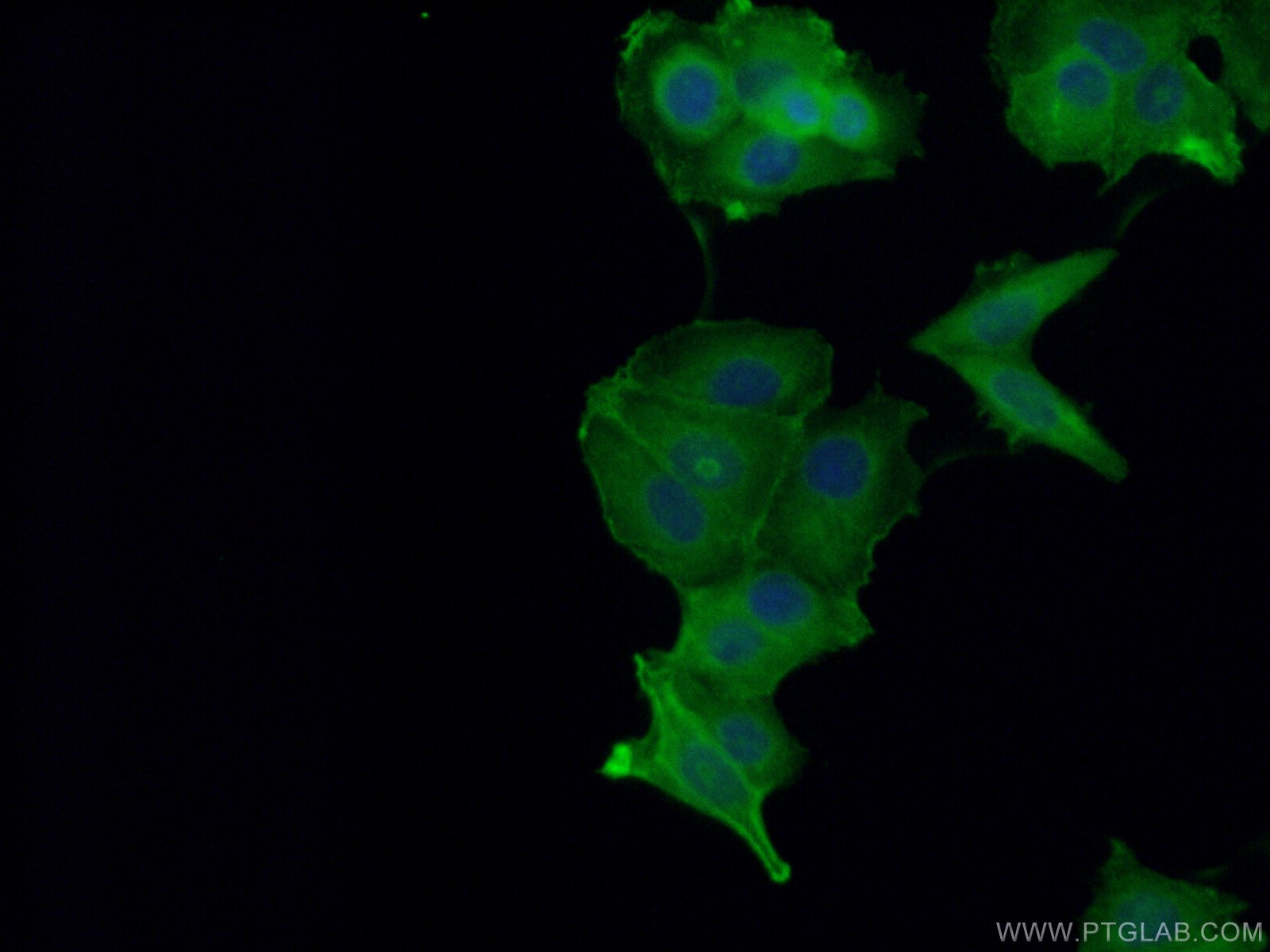验证数据展示
经过测试的应用
| Positive WB detected in | HEK-293T cells, mouse liver tissue, HeLa cells, Jurkat cells, C2C12 cells, NIH/3T3 cells, mouse skeletal muscle, rat skeletal muscle |
| Positive IP detected in | HeLa cells |
| Positive IHC detected in | human colon tissue, human breast cancer tissue, human lung cancer tissue Note: suggested antigen retrieval with TE buffer pH 9.0; (*) Alternatively, antigen retrieval may be performed with citrate buffer pH 6.0 |
| Positive IF/ICC detected in | MCF-7 cells, HeLa cells |
推荐稀释比
| Application | Dilution |
|---|---|
| Western Blot (WB) | WB : 1:5000-1:50000 |
| Immunoprecipitation (IP) | IP : 0.5-4.0 ug for 1.0-3.0 mg of total protein lysate |
| Immunohistochemistry (IHC) | IHC : 1:2500-1:10000 |
| Immunofluorescence (IF)/ICC | IF/ICC : 1:200-1:800 |
| It is recommended that this reagent should be titrated in each testing system to obtain optimal results. | |
| Sample-dependent, Check data in validation data gallery. | |
产品信息
19096-1-AP targets ACTN4 in WB, IHC, IF/ICC, IP, CoIP, ELISA applications and shows reactivity with human, mouse, rat samples.
| Tested Applications | WB, IHC, IF/ICC, IP, ELISA Application Description |
| Cited Applications | WB, IHC, IF, IP, CoIP, ELISA |
| Tested Reactivity | human, mouse, rat |
| Cited Reactivity | human, mouse, rat, canine |
| Immunogen | ACTN4 fusion protein Ag13546 种属同源性预测 |
| Host / Isotype | Rabbit / IgG |
| Class | Polyclonal |
| Type | Antibody |
| Full Name | actinin, alpha 4 |
| Synonyms | Alpha actinin 4, Alpha-actinin-4, ACTN 4, actinin, alpha 4, Actinin alpha 4 |
| Calculated Molecular Weight | 105 kDa |
| Observed Molecular Weight | 100-105 kDa |
| GenBank Accession Number | BC005033 |
| Gene Symbol | ACTN4 |
| Gene ID (NCBI) | 81 |
| RRID | AB_10642150 |
| Conjugate | Unconjugated |
| Form | Liquid |
| Purification Method | Antigen affinity purification |
| UNIPROT ID | O43707 |
| Storage Buffer | PBS with 0.02% sodium azide and 50% glycerol pH 7.3. |
| Storage Conditions | Store at -20°C. Stable for one year after shipment. Aliquoting is unnecessary for -20oC storage. |
背景介绍
ACTN4 (alpha actinin 4) is a ubiquitous actin-binding protein that cross-links actin filaments into bundles to form filopodia, and has a crucial role in cytoskeletal organization. ACTN4 is colocalized with actin stress fibers and is dispersed in the cytoplasm and in the nucleus. Increased levels of ACTN4 have been associated with cancer metastasis, indicating its implication in cancer cell migration and metastasis. Defects in ACTN4 cause glomerular disease. This antibody recognizes 100-105 kDa of endogenous ACTN4 protein in various lysates. (22370640, 10700177)
实验方案
| Product Specific Protocols | |
|---|---|
| WB protocol for ACTN4 antibody 19096-1-AP | Download protocol |
| IHC protocol for ACTN4 antibody 19096-1-AP | Download protocol |
| IF protocol for ACTN4 antibody 19096-1-AP | Download protocol |
| IP protocol for ACTN4 antibody 19096-1-AP | Download protocol |
| Standard Protocols | |
|---|---|
| Click here to view our Standard Protocols |
发表文章
| Species | Application | Title |
|---|---|---|
J Thorac Oncol Alpha-actinin 4 is Associated with Cancer Cell Motility and is a Potential Biomarker in Non-Small-Cell Lung Cancer. | ||
Oncogene KLF5 regulates actin remodeling to enhance the metastasis of nasopharyngeal carcinoma | ||
Cancer Immunol Immunother Circulating PD-L1 is associated with T cell infiltration and predicts prognosis in patients with CRLM following hepatic resection. | ||
Sci Rep Poly-L-ornithine enhances migration of neural stem/progenitor cells via promoting α-Actinin 4 binding to actin filaments. | ||
J Cell Sci GIPC3 couples to MYO6 and PDZ domain proteins and shapes the hair cell apical region |
